
You are reading:

You are reading:
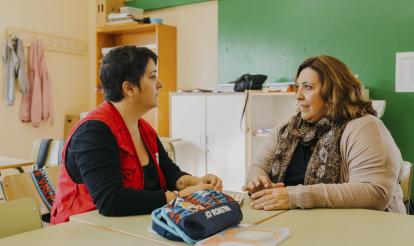
30.10.25
6 minutes readFollowing the storm that struck Valencia in October 2024, many children were left in a situation of severe vulnerability. Through its CaixaProinfancia programme, the ”la Caixa” Foundation has been helping to address their emotional, material and educational needs. Twelve months on, that support continues.
On 29 October 2024, Inma was at home with her 11-year-old son when a neighbour knocked on the door and said, “Go upstairs, the water’s coming.” Within seconds, her garage began to flood. The water eventually rose to more than a metre high, reaching halfway up the stairs to the first floor. “My son was looking down the stairs saying, ‘Mum, it’s on the second step; Mum, it’s on the third; Mum, it’s on the fourth,’” she recalls. They lost their car, computer, fridge, clothes…
This is Inma’s account, but hundreds of thousands of people affected by the storm that claimed 229 lives across dozens of Valencian municipalities that day could tell similar, or even more harrowing, stories. “I didn’t step outside my front door until the sixth day. I didn’t want to see, so that my mind wouldn’t hold on to certain things,” recalls this mother, who lives in L’Horta Sud, the ground zero of the tragedy.
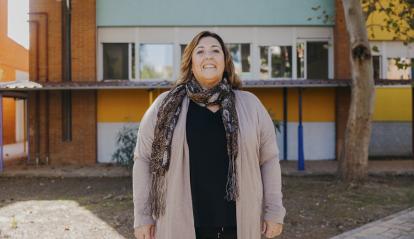
In situations like this, one group is especially vulnerable: children. That is why social organisations dedicated to protecting children focused all their efforts on meeting their needs from day one.
“The first priority was to create safe spaces,” explains Rodrigo Hernández, director of Save the Children in the Valencian Community, one of the organisations collaborating with the CaixaProinfancia programme that coordinated the response to the disaster. “When schools were closed or inaccessible, when the streets weren’t safe because there was no lighting and everything was covered in mud…, it was essential to ensure that children had a space where they were protected, where we could monitor how they were coping and address any issues, and where families could bring them knowing they were safe.”
Later, these safe spaces were moved into schools as they gradually reopened, and within them, organisations continued supporting the children to ensure their wellbeing.
At the same time, the programme provided families with assistance to cover basic needs. The idea was “to make sure they had enough to eat, a mattress, blankets, and that they could pay for electricity or rent during the month they’d lost their job or been unable to work,” Hernández explains.
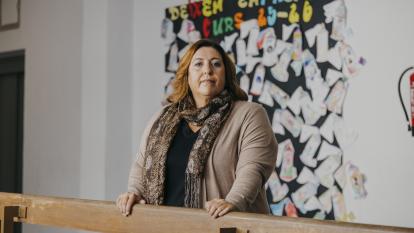
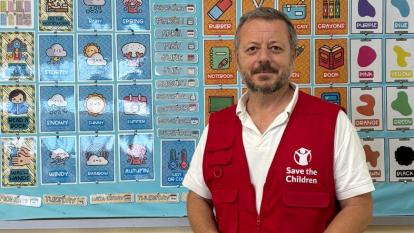
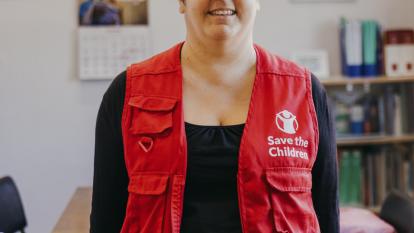
A year ago, the ”la Caixa” Foundation launched an extraordinary aid plan worth more than five million euros to support people affected by the DANA. The initiative was implemented in two phases, emergency and recovery, with the aim of addressing the most urgent needs first and then providing long-term support to families. The plan was structured around four main areas of action: emergency relief, social inclusion, health, and support for children.
“An emergency doesn’t end when the streets are clean,” explains the head of Save the Children. He stresses that “it’s vital to continue working hard so that the lives of families affected by the DANA can return, at the very least, to where they were before.”
The disaster has affected everyone, but those already living in vulnerable situations have felt its impact more acutely: “Every family has gone down a rung. Those who were doing fine have lost things, those who were getting by are now struggling, and those who were already struggling are now in serious difficulty.”
Over the past year, the CaixaProinfancia programme, coordinated in the area by Save the Children, has supported around 200 families in the towns most affected by the storm. With the help of eight other social organisations, two new programme networks have been set up in L’Horta Sud, and the existing one in the La Torre neighbourhood has been strengthened. Among the key needs being addressed are mental health and education.
On the first of these fronts, the organisation’s director describes signs of stress and trauma among the affected children. Some, although generally doing well, relive the experience whenever a storm arrives and ask their families: “Is it going to happen again? Will we have to move? Will we have to rebuild the house again?”
As for educational needs, the challenge, in Rodrigo Hernández’s words, is “to make up for lost time so that they can reach the same level as children who weren’t affected by the DANA.” Drawing a comparison with what is often called the summer learning loss, he suggests that “right now, we could speak of a DANA learning loss, and that’s why we need to work hard to help these children catch up and return to school life as normal this academic year.”
To achieve that goal, the organisations working with CaixaProinfancia provide educational support services attended by children like Inma’s son. “The extra classes are really important, not just because of the DANA, but in general, since he’s in his final year of primary school, which is a tricky stage,” his mother explains. “He goes along with his classmates, they teach him good study habits, and he also tells me they do lots of workshops. So it’s not just about studying, he’s also sharing in lots of other activities that are really good for him,” she adds.
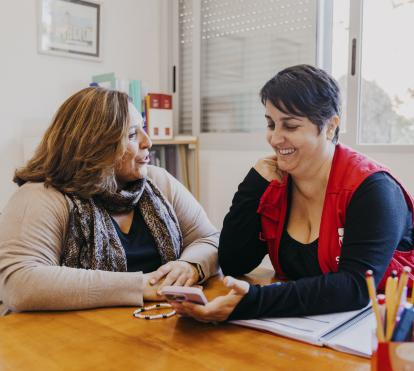
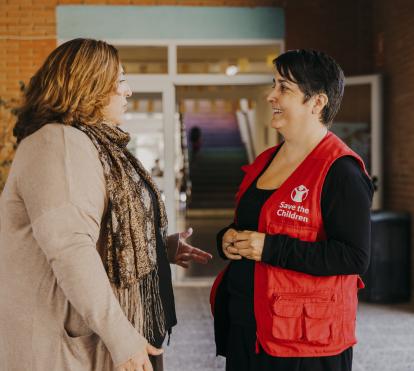
This support is complemented by others, such as the financial aid that enabled Inma to buy school materials for her son and enrol him in a summer socio-educational camp, which became the gateway through which he first joined the programme.
In families like hers, where neither parent is currently working, this kind of support can make all the difference in helping a child to move forward.
It is a demanding task, but also a rewarding one for the professionals involved. “There are countless positive experiences. We’ve seen children’s situations improve, families who had lost their jobs find work again, and others who have managed to rebuild their homes,” says the head of Save the Children. However, the emergency is far from over: “There’s still a lot to be done.”
A year on, the commitment remains firmly in place, with the aim of contributing to the wellbeing and recovery of the communities most affected by the disaster. For this reason, the ”la Caixa” Foundation has increased the funding for the 2025 Social Projects call in the Valencian Community by one million euros, in order to continue supporting the social organisations working in the hardest-hit areas and actively contributing to the recovery. This additional funding will make it possible to support 27 further projects focused on addressing needs arising from the storm. Several of the organisations leading these initiatives also took part a year ago in the Emergency DANA Call.